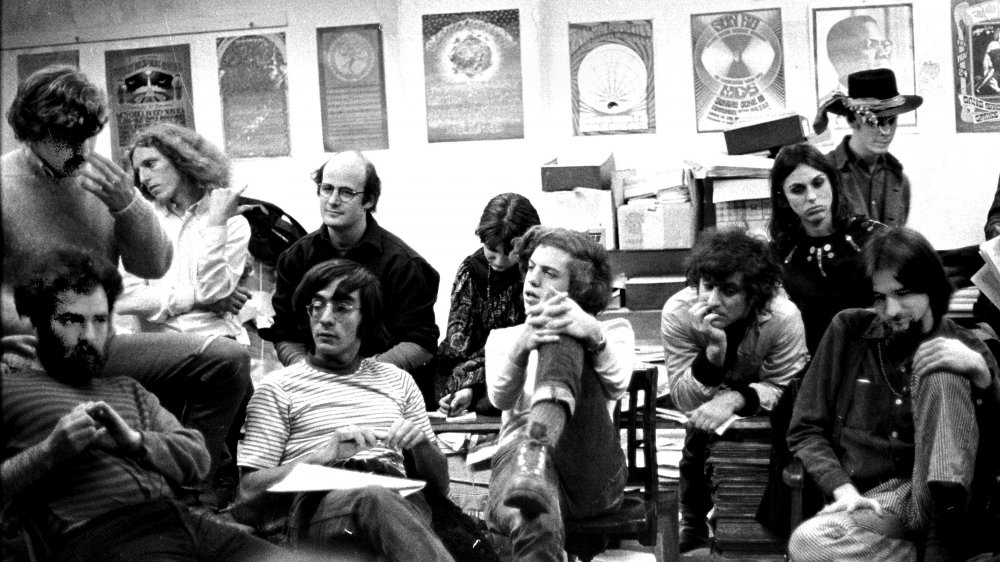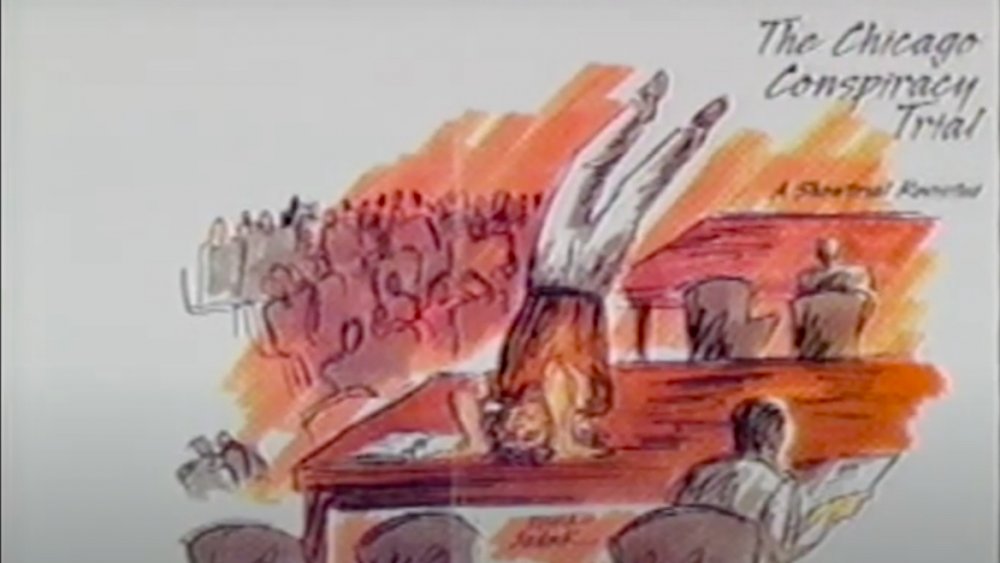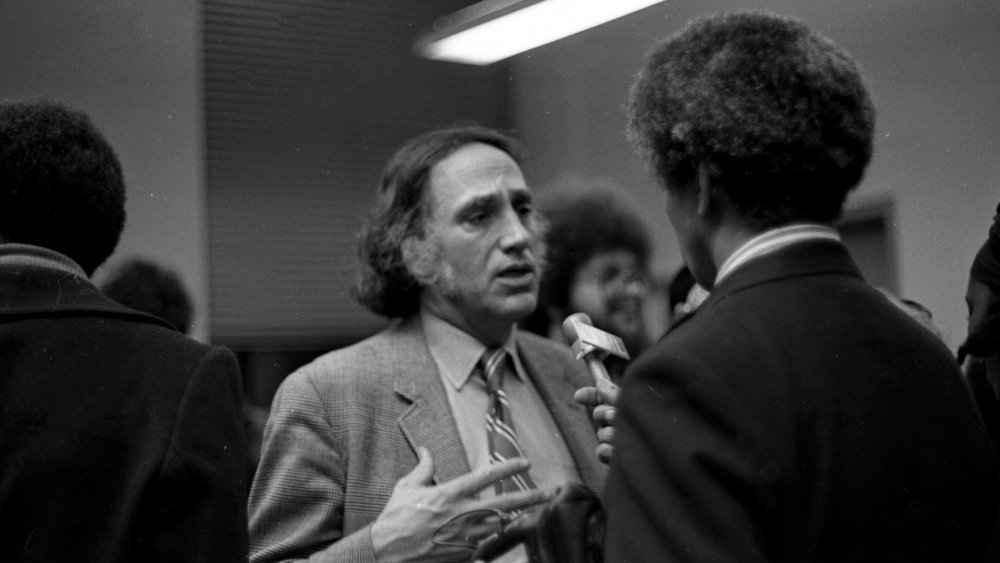What The Trial Of The Chicago 7 Didn't Tell You
As with any historically based drama, the new Netflix film from screenwriter and director Aaron Sorkin, The Trial of the Chicago 7, has audiences asking how accurate it is, and how much was cooked up for entertainment purposes. The film follows the 1969 trial of a group of anti-war activists known as the Chicago 7 (originally the Chicago 8) charged with conspiracy and inciting to riot, among other charges, for protests held outside the 1968 Democratic National Convention in Chicago. (That eighth man was Bobby Seale, co-founder of the Black Panther Party. His trial was severed from the original one during the proceedings, dropping the number of defendants to seven.) Luckily for Sorkin, the real trial was such a circus that he didn't have to stretch his imagination too far to produce some truly crowd-pleasing onscreen antics. In fact, the contentious and dramatic trial was so full of spectacular details that Sorkin had to pick and choose what to put in his screenplay, and he ended up leaving out some of the wackiest things that Abbie Hoffman and the other activists did during their defense.
If you're wondering whether or not Abbie Hoffman (played by incorrigible prankster Sacha Baron Cohen) and Jerry Rubin wore judge's robes in court one day, the answer is yes, they definitely did. But they did not sport police uniforms underneath them as the movie portrays. And when it comes to Hoffman's behavior, the film left out one of his most audacious acts during the trial.
Abbie Hoffman did a headstand on the defense table to distract the media
Like the actor who plays him in the film, Hoffman never passed up a chance to mock what he viewed as unjust authority. As Slate pointed out, his behavior during the trial was so contemptuous of the process that he saw as a farce that some of his most outrageous behavior in the courtroom didn't even make it into the movie. He taunted the judge — also a Jewish man named Hoffman — in Yiddish, calling him a term defined by eJewish Philanthropy as "describing embarrassing behavior by a Jew where a non-Jew can witness it." According to Time, Abbie also called him a "stinker, fronting for the gentiles." When the judge got fed up with Hoffman's mouth, the irreverent activist told him he'd have to cut the tongue out of it in order to shut him up.
However, in what ranks as one of his wildest tactics during the trial, Hoffman got up on the defense table and did a headstand in order to distract media attention away from the testimony of a witness brought by the prosecution. He asked defense attorney Leonard Weinglass, interviewed by Media Burn, if the Chicago police officer's testimony would hurt their defense, and the answer was yes it would. "Well," Abbie said, "I'll make it disappear." He hopped up on the table, did a quick yogic inversion, and the spectacle — rather than the officer's testimony — was what made the evening news.
The epic, made-for-the-movies monologue that didn't make the cut
Although Sorkin has a bit of thing for scripting idealistic monologues that can range from the breathtaking to the annoyingly self-righteous, he seems to have passed on the chance to do so in The Trial of the Chicago 7, even though the real trial actually featured a rather stirring speech from Weinglass' fellow defense attorney William Kunstler. In a climax no less moving, Sorkin opted to focus on flashbacks to scenes of police ruthlessly attacking protestors at the 1968 demonstrations. Time called the ending "a far neater resolution, with the bloody visuals giving the film real-world stakes." As recorded in the official court transcripts, Kunstler told the court that he was "outraged" that certain witnesses the defense had wanted to call were not allowed to take the stand, as supporters of the accused shouted, "Right on!"
The attorney went on to say that he was prepared to go to jail and even forfeit his license to practice law for his forceful admonishment of how the court had been handled during the trial. "I am going to turn back to my seat with the realization that everything I have learned throughout my life has come to naught, that there is not meaning in this Court, and there is no law in this Court," he concluded, wrapping up a trial full of antics, spectacle, and, indeed, outrage for anyone who strives for a society based on justice, equality, and basic human values.


